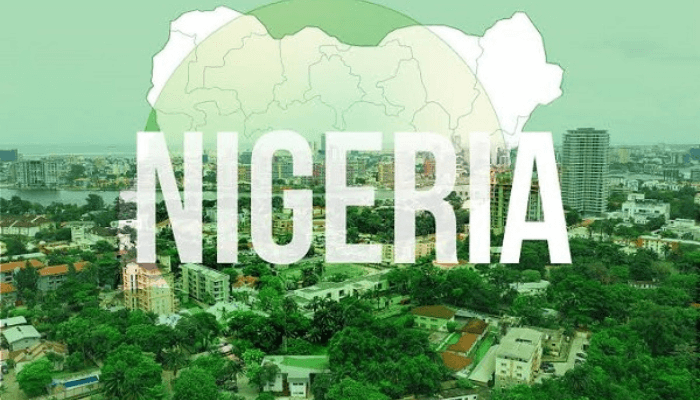A clear baseline is thus established, making the institution of vectoral interventions that are based on material facts and figures on the ground an easy task. It is the opinion of this writer that the approach of a knowledge-value revolution is the most viable idea for leveraging the functional capacities of the Nigerian political and economic ecosystems to achieve break-out in five years, and then full assimilation before the decade runs out.
The practical framework of this revolution should rest on five development objectives, designed to replicate the process of anthropological cognition. This is captured in the vision of a project I happen to be involved in, working with some of the state governments of North West.
First is the enhancement and sustainment of access as well as significant improvement of enrolment, retention, transition and completion rates for primary as well as secondary school children and indigent Out-Of-School-Children (OOSC). Specific measures under this component will focus on creating a critical mass of skilled and capable brains numerous and ubiquitous enough to flood the entire relevant ecosystems of society. One such is the RUMFA Lever, which stands for the Revolving Uniform Management Framework for Almajirai. In abstract terms, this is simply an inversion of the tried and discredited social experiment of a simplistic conversion of tsangaya to boko.
Simply put, this does not and will not work given the structural incompatibility of the two models. RUMFA rejects the systemic duopoly which recognises boko and tsangaya as two different things. Knowledge is knowledge, whether Arabian or European or Chinese. The only difference will be a shift in the dimensional focus, where the tsangaya model of teaching and learning that has produced world class experts in all the Islamic sciences in Nigeria and elsewhere will return to the classrooms. Both methods of delivery work, but given contemporary context, the tsangaya/RUMFA approach will yield much greater learning outcomes. Instead of mere integration where boko supplants tsangaya, RUMFA’s approach will alongside Islamic studies teach actual sciences, arts and humanities on the basis of the revolving uniformity of the tsangaya framework.
Ohanaeze, northern elders seek renegotiation of Nigeria’s unity
2023 budget: Finance ministry on the spot over N424bn ‘padding’
This will of course entail a fundamental reimagination and reconceptualisation of the teaching and learning processes that are predicated upon the popular culture of the Islamic Sudan. If for instance, the periodic table should be taught on the same allo schoolkids learn Arabic and the Qur’an on, it is conceivable that it will be an instant hit especially if applications and parallels could be conceived in the historical context of the Sudan. The cultural and intellectual resistance that has been in the way. When learning was called boko will immediately be overcome and would be learnt with the same enthusiasm the Qur’an is accorded. This means that learning will be reinforced further through subliminal messaging and imaging, based on the Islamic worldview and relativity.
To alleviate the problem of apathy when it comes to the subject of the girlchild education, another innovation will leverage an elaborate advocacy campaign entitled the ‘Mau’uda Lever’. The campaign, like other ESIDI interventions is designed to target actual problems instead of their symptoms, and its generic thrust will be to liken the deprivation and/or discrimination girl child faces to the act of burying female babies alive in pre-Islamic Arabia.
To further boost and sustain outcomes from this measure, Human Capital Savings Accounts funded to the tune of USD100, 000 will be created and allocated accordingly as an education insurance utility. The accounts awarded to selected beneficiaries will finance in full, their education to a maximum of three advanced degrees, together with housing, healthcare, and other personal overheads throughout the duration of study.
To complement the conventional structure that is formed around the passively coercive strictures of the education system where teaching and learning are effected in the four walls of a classroom, a cadastral online community of grassroot schoolchildren will be created on the basis of community units. These units sequentially expand, up to the general assembly of all tiers of the architecture, to wit, students, teachers as well as administrators. This instrument, entitled the “Peer Lever”, will serve as a base for sharing resources and ideas towards solving complex and real-world problems each community unit faces, as a moral, psychosocial, academic/social support network. The resultant hive-mind is expected to amplify collective strengths while also drastically blunting individual weaknesses. It will also play a significant role in ensuring that no one is left behind in all conceivable terms.
The second objective will be to close human resource gaps in terms of both quantity and quality. It is necessary that the human resources involved in shaping minds according to specifications required for the assimilation of knowledge-value to be plentiful as well as competent. Mechanisms developed in support of this objective such as the Hudahuda Lever will aim to boost the ready availability of qualified teaching as well as administrative assets across board through a number of short, medium and long-term measures.
Part of the implementation structure is the Peer Lever utility mentioned under objective 1. This online teaching and learning mechanism will be integrable with the Peer Lever platform and will further facilitate remote learning. Hudahuda will make available to the education system world-class expatriate resources within the most knowledge-focused online circles on a volunteer basis.
The network will attract interested and qualified volunteers with priority given to university research students and scholars, competent Quora, YouTube communities, education development foundations, Silicon Valley tech scholars, development think tanks, etc to teach classes with no permanent or well-qualified teaching assets on ground. Owing to necessities created by the COVID-19 Pandemic, online learning has been transformed into a circumstantially very effective academic culture due to the wellspring of refinements and functionalities added.
(To be continued)

 Join Daily Trust WhatsApp Community For Quick Access To News and Happenings Around You.
Join Daily Trust WhatsApp Community For Quick Access To News and Happenings Around You.

